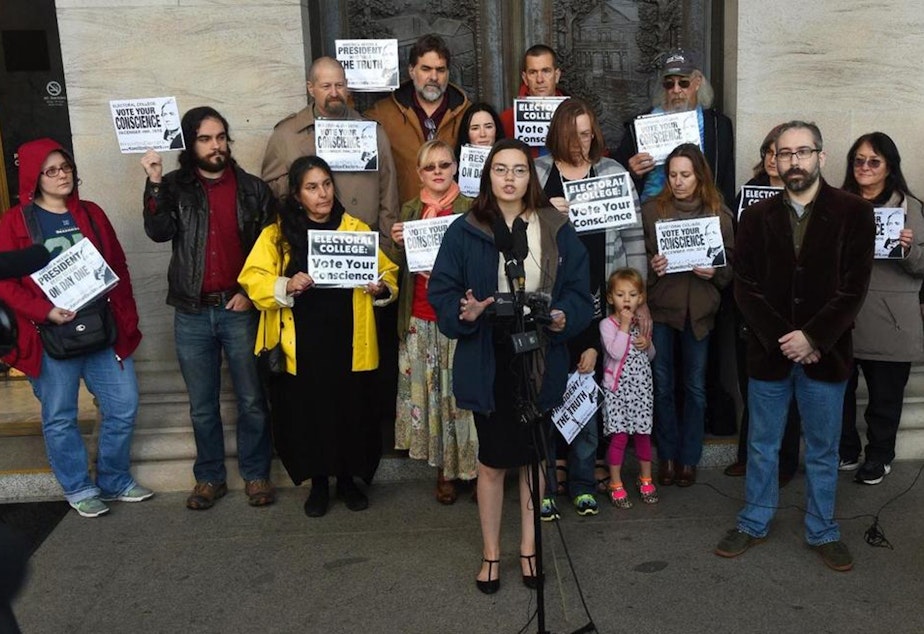These Washington state electors were fined for not voting for Clinton. Their case may end up at the Supreme Court

Three Washington Democrats will explain Tuesday to the state Supreme Court why they voted against their party's presidential nominee in the 2016 election.
The three, Levi Guerra, Esther V. John, and Peter B. Chiafalo, were among 12 Democrats the state sent to the Electoral College.
Candidate Hillary Clinton won the Presidential Primary for the Democratic Party in Washington state in 2016, but when it came time for the Electoral College to vote, the three electors refused to vote for her. Their refusal was part of a larger plan to foil Donald Trump's nomination.
The state fined them $1,000 each for violating their party's rules.
Their attorney, Harvard professor Lawrence Lessig, is asking the court to overturn the fines and allow electors to vote as they choose.
"We think it's pretty clear, under the Constitution, that Washington's not allowed to do that because these electors, though selected/appointed by Washington, are actually acting to perform a federal function and can't be controlled by a state," Lessig said.
He said the state doesn't have authority to tell electors who to vote for.
"There have been about 167 electors in the course of American history who have deviated from how they were expected to vote," he said, "and Washington state is the first state in the history of the nation to fine electors."
Sponsored
The state maintains that electors must follow their party's choice and face fines if they refuse to. Assistant Attorney General Callie Castillo will argue the case for Washington's Secretary of State's Office.
Instead of casting votes for Clinton, electoral college members Guerra, John, and Chiafalo voted for former U.S. Secretary of State Colin Powell. The effort was part of the failed "Hamilton Electors" movement that sought to deny Donald Trump the presidency, by persuading electors to vote for other Republicans, instead.
The state Supreme Court hears the case Tuesday. A related hearing is also scheduled in Colorado this week.
Lessig said the cases should be decided by 2020 to prevent confusion over whether electors can pick their own candidate. The case could eventually end up the U.S. Supreme Court.



